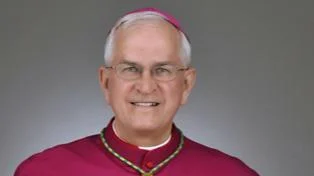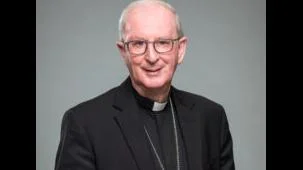
Reverend Joseph E. Kurtz, D.D. Bishop | Archdiocese of Louisville
More than 2 billion people in over 50 countries are set to go to the polls in 2024, according to the Center for American Progress. However, Pope Francis has expressed concern that people feel increasingly disconnected from their governments.
Participating in a conference in Trieste, Italy, on July 7, Pope Francis discussed democracy at length. In preparation for this visit, the Vatican publishing house produced a booklet compiling papal speeches on democracy with a new introduction by Pope Francis. The booklet was published in Italian on July 7 as an insert in Trieste’s local newspaper, Il Piccolo.
The pope wrote that while democracy has spread globally in recent decades, today it “seems to be suffering the consequences of a dangerous disease,” that of “democratic skepticism.” He noted that people’s distrust in democracy often yields to the allure of populism and stems from its perceived difficulty in addressing current challenges such as unemployment and technocratic paradigms.
In his speech during Italian Catholic Social Week on July 7, the pope emphasized the need to train individuals in democratic participation from a young age and instill them with “a critical sense regarding ideological and populist temptations.” The four-day conference is organized every three to four years by the Italian bishops’ conference to engage Catholics in social issues. This year’s theme was “At the Heart of Democracy.”
True democracy, he added, involves more than just voting; it requires creating conditions for everyone to express themselves and participate in society. This sentiment echoes a distinction made by Pope Pius XII in his radio message on December 24, 1944. During World War II, Pope Pius discussed the difference between “the people” and “the masses.”
A people "lives and moves by its own life energy" and consists of individuals conscious of their own responsibility and views. Conversely, masses wait for external impulses and are easily manipulated. Pope Pius warned that disengaged masses could be exploited by those seeking selfish aims, reducing the state to a mere machine imposing whims on the populace.
Pope Francis advocates developing solidarity and togetherness to counter becoming merely "the masses." In authoritarian regimes, no one participates; everyone watches passively. Democracy demands participation and bringing one's ideals into public discourse.
Standing idly by is not only ethically unacceptable but also unwise from a selfish perspective. Indifference is "a cancer of democracy," Pope Francis said during his July 7 speech.
In his text, Pope Francis highlighted leveraging democracy's greatest asset—being "together." He praised democratic governance within a community framework that freely confronts issues for the common good. Togetherness fosters solidarity through sharing public arena issues for convergence.
The pope pointed out several pressing societal issues requiring joint action: receiving migrants, falling fertility rates, and pursuing peace through negotiation rather than increased firepower. Especially "in these times overshadowed by war," he prayed for commitment to fully participatory democratic life aimed at the true common good.




 Alerts Sign-up
Alerts Sign-up